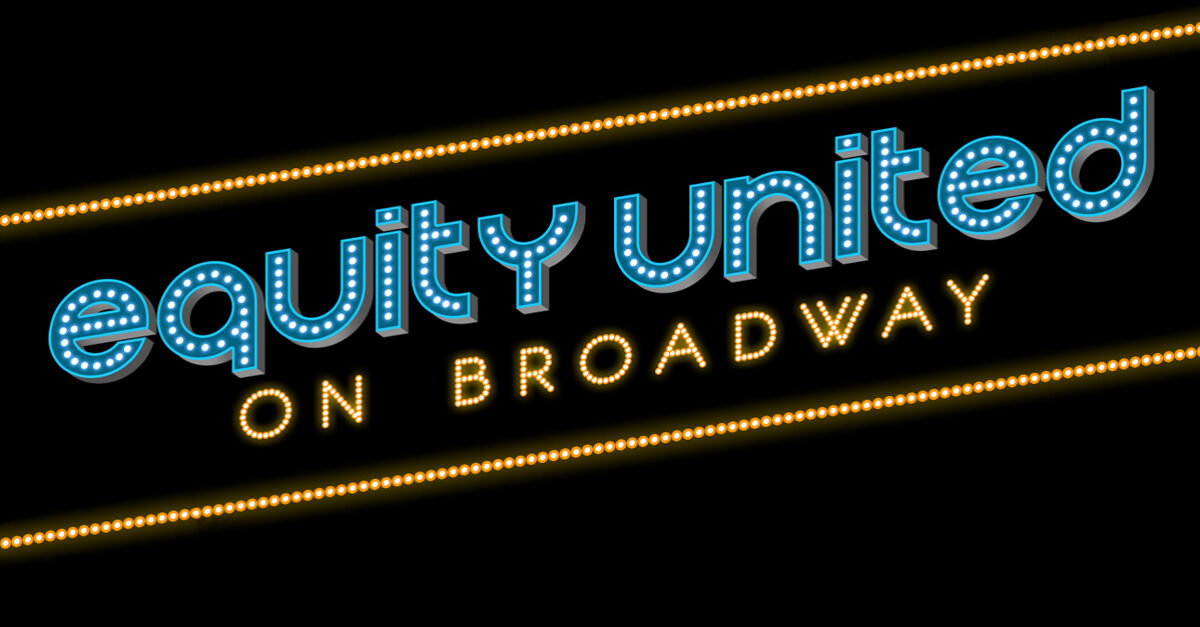
Broadway Actors to Receive 3 Percent Pay Increase With New Contract
On October 18, following weeks of tense negotiations that also included the threat of a strike, the actors-stage managers union Actors’ Equity Association and the Broadway League came to an agreement on the details of a new Broadway work contract. On October 22, details of the new three-year Production Contract were released to Equity’s membership, who have until October 30 to vote on whether or not to adopt the new contract.
A lengthy email—co-written by Jacqueline Jarrold, Anne McPherson, and Kristen Beth Williams (who were on the negotiating committee)—was sent to the union’s 51,000-plus membership breaking down the new agreement and explaining how it addressed member concerns.
Most notably, the new contract includes a pay increase. Currently, Broadway actors make at least $2,638 a week (though their pay can increase if they take on additional duties, such as being an understudy). Under the new contract, the salary minimum would be $2,717, and that number would increase by 3 percent annually over three years. Swings (actors who can go on for multiple roles in a show) would receive an additional 6 percent in pay on top of their current salary.
Broadway producers would also increase the amount they contribute to actors’ and stage managers’ health insurance. Currently, Equity members receive health insurance through the union, with a portion of that Health Fund financed by producers. Right now, producers contribute $150 a week per employee. The new agreement would see that contribution increase to $175 a week per employee, with a $25 increase to that amount every year over three years.
Related on the health front, the proposed contract would ensure that actors would be able to request physical therapy at any time, even if they’re in a show where physical therapy is not already provided by producers.
Another point of contention for Equity members was overwork from performance schedules that veer from the eight-shows-a-week model, including instances where performers are scheduled to perform for two weeks straight over the holidays without a rest day. The new contract would limit how many shows members could work in a row. Under the new contract, union members would only be asked to work for a maximum of 12 days in a row (down from 16). Four times a year, producers would still be able to call for a work schedule of 13 days or more, but members would then be entitled to a paid performance off, or a paid personal day to take at a later time. This would be the first time that Equity actors and stage managers have ever received paid personal days.
In addition, stage managers would be able to request additional staffing if they feel a show is too technically advance to manage with their current team; that decision was previously left up to producers. Said the Equity email: “Equity has been trying for over a decade to increase the size of stage management teams, and this is the first time ever we have made any meaningful progress on this front.”
Equity members would also be able to call out of work without being subject to disciplinary action if they have “good and sufficient cause”—which includes sickness, injury, and personal or family emergencies.
Though many of these changes concern what happens backstage, there is one change that may be noticed by Broadway audiences. In a move towards “reduced paper use and making our industry greener,” producers would be allowed to have a QR code printed in the physical Playbills announcing cast changes, instead of a paper insert. An archive of cast changes will need to remain online for 30 days. There would still be a physical callboard at every theatre announcing the cast for that particular performance. For shows that require Yondr pouches for phones (such as the currently running Liberation), paper inserts would still be used.
In the email to union members, Equity also revealed the requests from the League that were shot down, which included options to schedule three two-show days without rest days in between, adopting fully digital Playbills, not announcing when swings were going on, wage cuts for juvenile actors, a decrease in pay for cast album recordings, and other stipulations.
Actors and stage managers who have worked on Broadway or in a sit-down production from September 30, 2019 onwards can now vote on this new contract. Ballots are due by 5 PM on October 30. If a majority of members disapprove of the new contract, Equity will go back into negotiations with the League. If members approve the contract, it will go into effect 120 days after ratification. Any pay increases dictated in the new contract will be retroactively applied, since the old contract expired September 28.
Wrote Jarrold, McPherson, and Williams in their email: “We have achieved a strong deal without making any major concessions. We were able to find creative ways to meet some of their asks without impacting our ability to deliver strong and safe work in their shows.”
Concurrently with the Equity negotiations, the Broadway musicians union AFM Local 802 were also in talks with the Broadway League on a new work contract. After threatening to call a strike on October 23, the terms of a new contract were agreed upon this morning. Playbill will report on those details when we receive it.
First Appeared on
Source link






